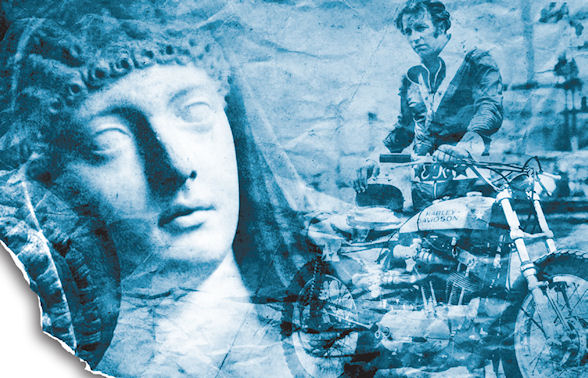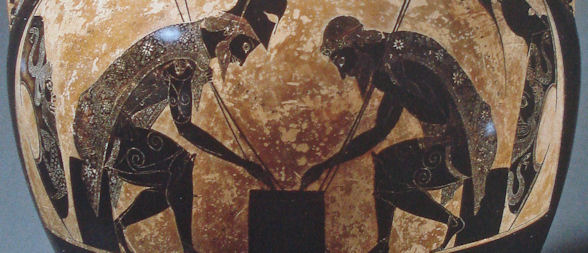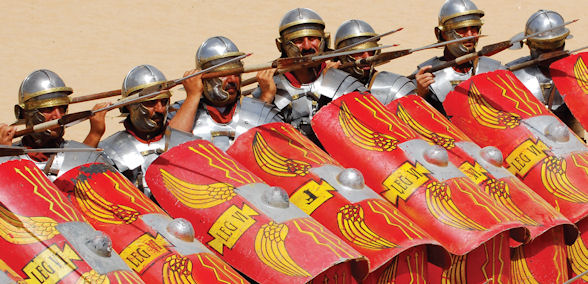This article first appeared in the Jul/Aug 2014 issue of World Gaming magazine.
We risk our existence, whether we want to or not, merely by continuing to breathe and move about; but also in part thanks to our habits concerning food, drinking, smoking, sports and so on. Such is life.
The Greek playwright Aeschylus died in 456 BC, according to legend, when a turtle fell from the sky on his head. This incident has a natural explanation – seagulls and other birds are known to drop their prey from high up in order for mussels, shells and even turtles to be smashed against the rocks so their innards can be accessed and devoured! It was simply horribly bad luck for Aeschylus to become the only recorded person in history to die in this fashion. And you complain about your bad beats in poker?

Death and severe bodily damage feature in a number of prominent wagers in the world of lotteries and sports betting. One classic case from literature is to be found in Homer’s “The Iliad”, where Greek warriors had to draw lots from the upturned helmet of Agamemnon to decide who among them would have to face the fearsome Trojan warrior Hector. Patroclos was the unlucky warrior chosen and died in the ensuing duel.
The oldest recorded sporting wager in Japan occurred in the sixth year of the reign of Emperor Suinin, in 23 BC. A warrior named Taima no Kehaya – widely known for his enormous strength but also for being a bad-tempered rogue – boasted “there was not his equal under Heaven” and begged for the Emperor to put him to the test.
Suinin had the challenge proclaimed throughout his realm and a simple village potter, Nomi no Sukune, decided to accept it. When the time came for the fight, staged in the palace courtyard, a number of the present nobles and courtiers had reputedly bet large amounts of money on the outcome.

The match turned out to be an extremely violent one but was in the end won by Sukune, who with his devastating kicks damaged Kehaya’s torso and stomach so badly that Kehaya subsequently died. As a result Sukune was promoted to high office by the Emperor and was respected throughout Japan.
A BRUTAL LOTTERY FOR YOUR LIFE
But for sheer life-on-the-line thrills, we shall have to turn to the Roman empire where a cruel form of lottery has left its mark in the word “decimate”. There, in the Roman Army, a very straightforward punishment was meted out for cowardice in battle – death.
However, if a large group of soldiers such as a whole cohort had run away in the face of the enemy, it was considered wasteful to execute them all. Instead the decimatio punishment was used, which in its main variant functioned like this – the guilty soldiers were made to stand in a long line and then stepped forward one by one. From a tall-necked clay urn they drew a piece of wood each. Every 10th piece of wood was marked with a special symbol and a soldier having the misfortune to draw one of these was – in order to strengthen morale – executed in full view of the others.

In the other variant, the guilty soldiers were split into groups of 10 (or as close as possible to this number), whereupon each group drew lots and the loser was beaten to death by his fellow soldiers. In both cases approximately every 10th soldier lost his life through this form of brutal lottery; thus the expression “decimate”, from the Latin verb decimare, meaning “to remove one-tenth”.
The earliest known case of decimatio occurred in 471 BC during the Roman campaigns against the Volsci, and was described by Titus Livy in his work Ab Urbe Condita. This punishment gradually died out during the first century AD although it was occasionally revived in a few other areas. The last European country to employ decimation within its army was the Netherlands in the 1600s.
It’s certainly something to keep in mind when next you contemplate playing for high stakes. Look out for more dangerous and bizarre wagers in upcoming issues of WGM.







